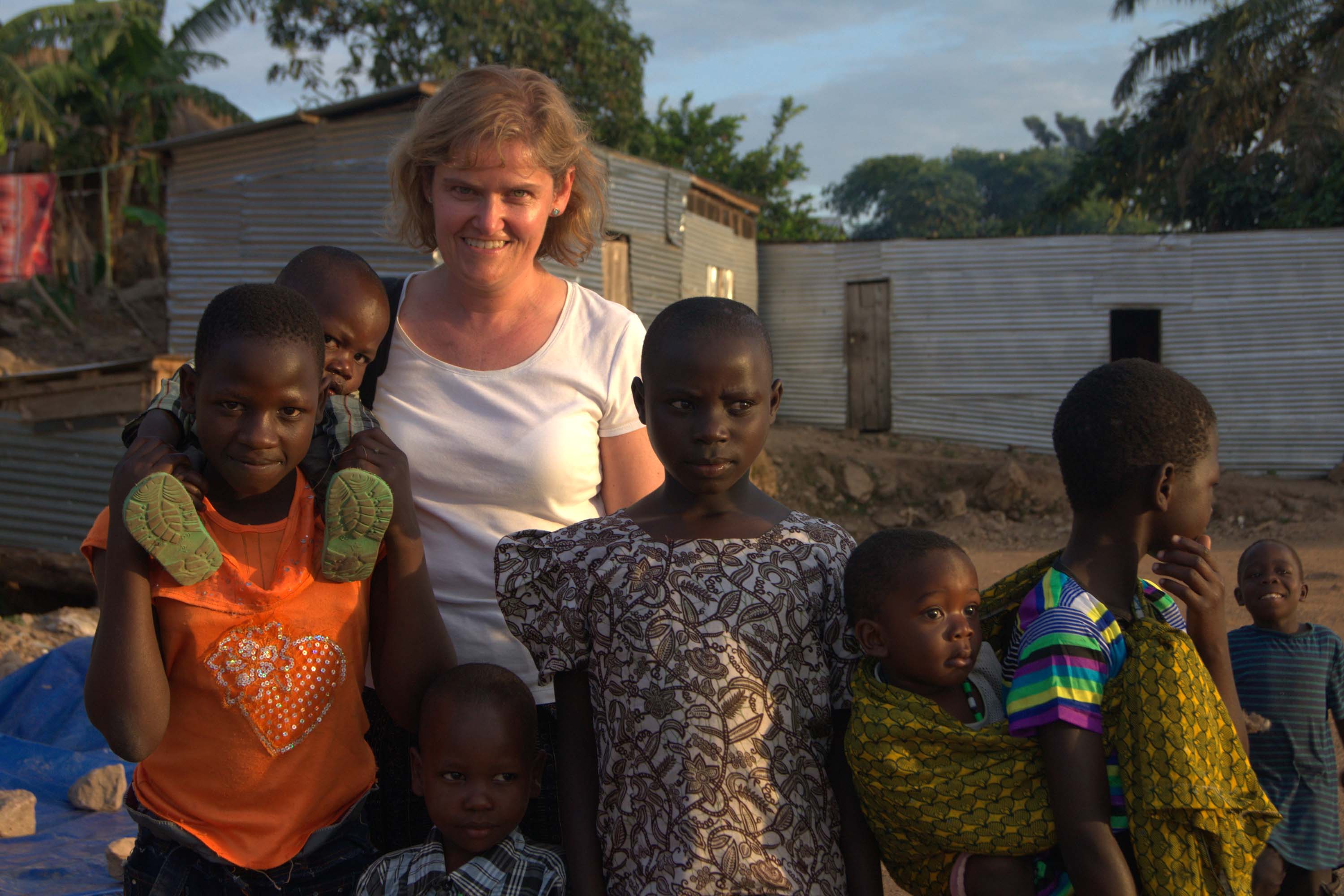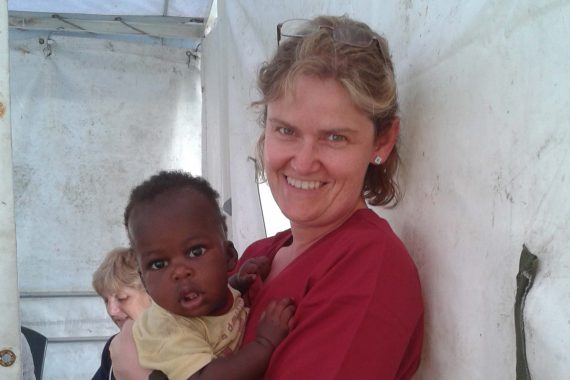
Age: 46
Role: GP partner in Alva Medical Practice in Central Scotland and volunteer on medical committee of Vine Trust, an international volunteering charity based in Edinburgh
Hours worked: Six sessions per week in practice, plus two-week trips to work as a doctor on Amazon Hope, a medical ship serving the remote communities of the Peruvian Amazon, or Jubilee Hope, a medical ship serving the islands of Lake Victoria in Tanzania
06.20
It has just become light and I am lying in my bunk. The gentle rolling reminds me I am not going to work in my practice in Scotland today but on board Jubilee Hope, a floating health centre on Lake Victoria in Tanzania. We are moored just off the Bumbire Islands. The project has been operating since 2015, after an epic journey from Scotland to Africa brought this re-fitted ex-Navy ship to work here. I pull on my scrubs and head up on deck to watch the sun rise and the fishing boats bringing in their night-time catch.
07.00
We grab a coffee and settle down for the morning meeting. There are six volunteers: three GPs including myself, a former health visitor, a former nurse and a final-year medical student. In addition, there is a full Tanzanian crew consisting of a local doctor, nurses, assistant medical officers and a non-medical crew. The day’s duties are allocated and any problems or concerns are raised.
07.30
Breakfast is served, usually eggs and pancakes, cooked in the tiny galley.
08.15
We set off in a smaller motor boat to the island. A large group waits, of all ages. We introduce ourselves in our best Swahili, much to the amusement of the locals, and give a short talk, which is translated, about the importance of hand washing. There is no running water and few latrines on the island, so this is a serious message. The nurses stay to do HIV testing while we return to the boat and our makeshift surgeries under canvas on the upper deck.
09.15
Patients are triaged on the island and come out to the boat in groups of 10 to 15. They each carry a small notebook, which is their medical record. There is only one doctor serving every 100,000 patients in this region, and this boat comes every two months so they are keen to be seen. We have a small pharmacy on board and a lab technician who checks haemoglobins, malaria status, syphilis VDRL, stool and urine microscopy. Patients often come with a sample of stool in a matchbox and urine in an old vaccine container. The engineers and crew double as translators as my Swahili is almost non-existent. There are a lot of conditions I am unfamiliar with initially, but after a while they become more routine. Malaria, ascariasis, pelvic infections, schistosomiasis, diarrhoea and sexually transmitted infections are all common. The fishermen travel from island to island and unfortunately this means there are very high rates of HIV and STIs. We see up to 300 patients a day between us.
14.00
After lunch we see another batch of patients. We brought out a number of basic pairs of spectacles from a local bargain store. One of the assistant medical officers tests vision and gives these out, to the absolute delight of a villager who has been unable to work because of deteriorating vision. A lady has been carried across the island who has a retained placenta. She is bleeding and is very weak but she is given oxytocin, iv fluids and her placenta is removed. She makes a good enough recovery to be transferred the next day to the mainland for a transfusion.
17.00
We are done for the day and there is an hour of daylight left. We queue for the shower, then we leave the boat for a short walk, followed by a large group of children who are desperate to talk to, touch and be photographed with these strange white folks.
18.30
A bit of time to relax and read and get to know fellow travellers, then a dinner of chicken, rice and beans with the crew.
21.00
Ready for bed. Life in Africa is very different. Tanzania has one of the lowest proportions of doctors per population in the world. Medicines are short, poverty is extreme and yet I know I will go back to my NHS job revitalised and appreciating what we have.
For more information on short-term volunteering in Peru or Tanzania go to vinetrust.org
Pulse October survey
Take our July 2025 survey to potentially win £1.000 worth of tokens














